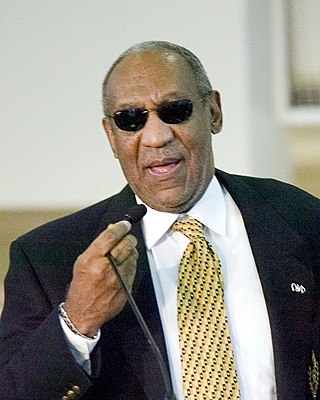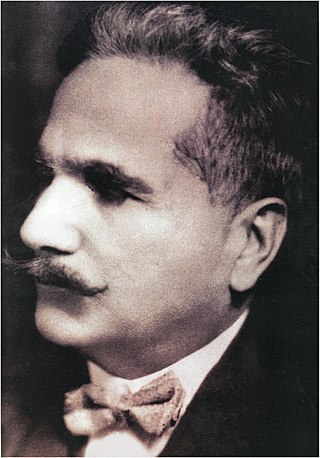The Nation of Islam (NOI) is a religious organization in the United States founded by Wallace Fard Muhammad in 1930. A black nationalist organization, the NOI focuses its attention on the African diaspora, especially on African Americans. While describing itself as Islamic, its religious tenets, though using Islamic terms, differ from orthodox Islamic traditions. Scholars of religion characterize it as a new religious movement. It operates as a centralized and hierarchical organization.

Ali Shariati Mazinani was an Iranian revolutionary and sociologist who focused on the sociology of religion. He is held as one of the most influential Iranian intellectuals of the 20th century, and has been called the "ideologue of the Islamic Revolution", although his ideas did not end up forming the basis of the Islamic Republic.

Wallace Fard Muhammad, also known as W. F. Muhammad, Wallace D. Fard or Master Fard Muhammad, was the founder of the Nation of Islam. He arrived in Detroit in 1930 with an ambiguous background and several aliases, and proselytized idiosyncratic Islamic teachings to the city's black population. In 1934, he disappeared from public record, and Elijah Muhammad succeeded him as leader of the Nation of Islam.

Warith Deen Mohammed, also known as W. Deen Mohammed, Imam W. Deen Muhammad and Imam Warith Deen, was an African-American Muslim leader, theologian, philosopher, Muslim revivalist, and Islamic thinker.

Pan-Islamism is a political movement which advocates the unity of Muslims under one Islamic country or state – often a caliphate – or an international organization with Islamic principles. Historically, after Ottomanism, which aimed at the unity of all Ottoman citizens, Pan-Islamism was promoted in the Ottoman Empire during the last quarter of the 19th century by Sultan Abdul Hamid II for the purpose of preventing secession movements of the Muslim peoples in the empire.
A cult is a group requiring unwavering devotion to a set of beliefs and practices which are considered deviant outside the norms of society, which is typically led by a charismatic and self-appointed leader who tightly controls its members. It is in some contexts a pejorative term, also used for new religious movements and other social groups which are defined by their unusual religious, spiritual, or philosophical beliefs and rituals, or their common interest in a particular person, object, or goal. This sense of the term is weakly defined – having divergent definitions both in popular culture and academia – and has also been an ongoing source of contention among scholars across several fields of study.
John Beecher was an activist poet, writer, and journalist who wrote about the Southern United States during the Great Depression and the American Civil Rights Movement. Beecher was active in the American labor and civil rights movements. During the McCarthy era, Beecher lost his teaching job for refusing to sign a state loyalty oath. Following a 1967 decision of the California Supreme Court that disallowed such a loyalty oath, he was reinstated in 1977. Beecher's books include Report to the Stockholders, To Live and Die in Dixie, and In Egypt Land.

The Pound Cake speech was given by Bill Cosby on May 17, 2004, during an NAACP Legal Defense Fund awards ceremony in Washington, D.C., to commemorate the 50th anniversary of the Brown v. Board of Education Supreme Court decision.

Wafa Sultan is a Syrian-American medical doctor, writer, and critic of Islam.

The Mountain Wreath is a poem and a play written by Prince-Bishop and poet Petar II Petrović-Njegoš.
Susan Jean Palmer is a Canadian sociologist of religion and author whose primary research interest is new religious movements. Formerly a professor of religious studies at Dawson College in Westmount, Quebec, she is currently an Affiliate Professor at Concordia University. She has authored and edited several books on NRMs.

Robert Louis Peters was an American poet, critic, scholar, playwright, editor, and actor. He held a PhD in Victorian literature. Born in an impoverished rural area of northern Wisconsin in 1924, his poetry career began in 1967 when his young son Richard died unexpectedly of spinal meningitis. The book commemorating this loss, Songs for a Son, was selected by poet Denise Levertov to be published by W. W. Norton in 1967. Songs for a Son began a flood of poetry.

Francisco Matos Paoli, was a Puerto Rican poet, critic, and essayist who in 1977 was nominated for the Nobel Prize in Literature. His books were rooted in three major literary movements in Latin America: Romanticism, Modernism, and Postmodernism.
Nayereh Esfahlani Tohidi is an Iranian-born American professor, researcher, and academic administrator. Tohidi is a professor emerita and former chair of gender and women’s studies, and the founding director of the Middle Eastern and Islamic studies at California State University, Northridge.
Hindu nationalism has been collectively referred to as the expression of social and political thought, based on the native spiritual and cultural traditions of the Indian subcontinent. "Hindu nationalism" is a simplistic translation of हिन्दू राष्ट्रवाद. It is better described as "Hindu polity".

Safa Abdul-Aziz Khulusi was an Iraqi historian, novelist, poet, journalist and broadcaster. He is known for mediating between Arabic- and English-language cultures, and for his scholarship of modern Iraqi literature.

Sir Muhammad Iqbal was a South Asian Islamic philosopher, poet and politician. His poetry is considered to be among the greatest of the 20th century, and his vision of a cultural and political ideal for the Muslims of British-ruled India is widely regarded as having animated the impulse for the Pakistan Movement. He is commonly referred to by the honourific Allama. and widely considered one of the most important and influential Muslim thinkers and Western religious philosophers of the 20th century.
The Black Scholar (TBS) is a journal founded in California, in 1969, by Robert Chrisman, Nathan Hare, and Allan Ross. It is the third oldest Black studies journal in the US, after the NAACP’s The Crisis and the Journal of African American History. The journal is currently housed at Boston University's Program in African American Studies. Originally published 10 times a year, and without peer review, the journal introduced peer review and became a quarterly in 2015.
Afaf Lutfi al-Sayyid-Marsot is an Egyptian-born historian, professor of history at the University of California, Los Angeles, who has written on the history of Egypt since the eighteenth century.

Attallah Shabazz is an American actress, author, diplomat, and motivational speaker, and the eldest daughter of Malcolm X and Betty Shabazz.











